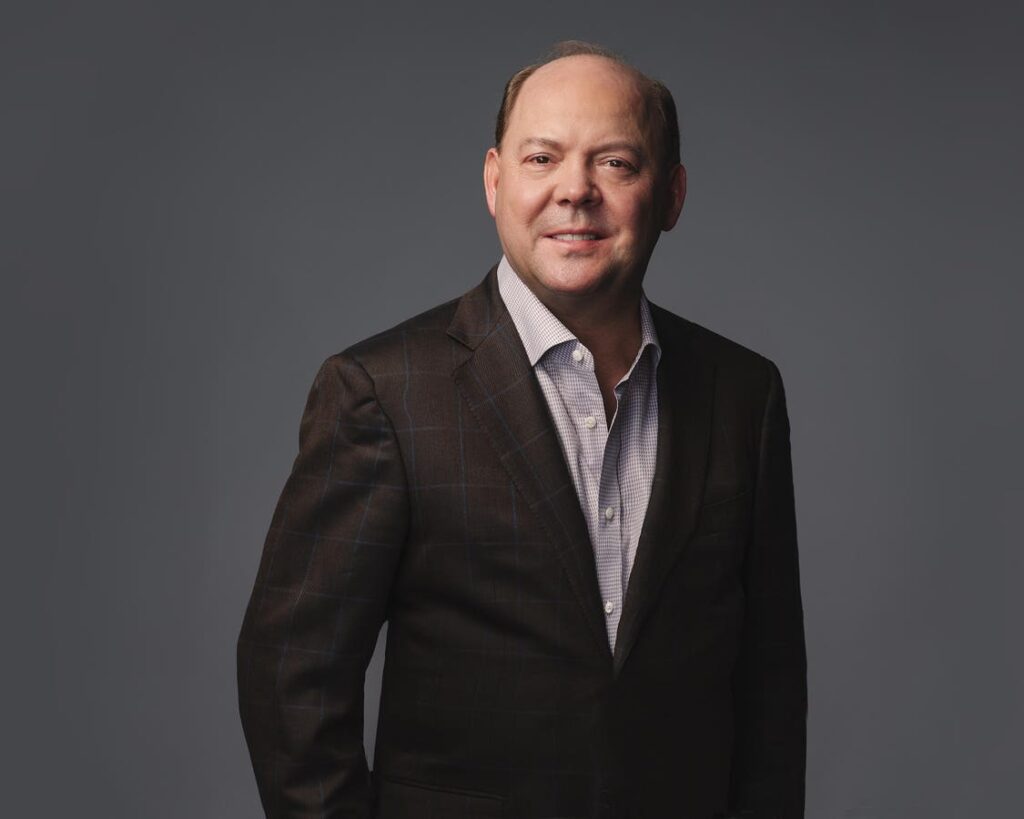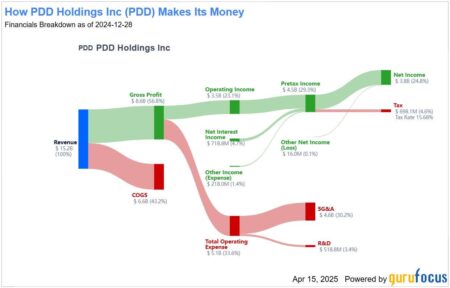As volatility changes every asset class, I have set out to personally interact with the people managing actual wealth through it all—fund managers of many stripes, disciplines, and ideas. From growth purists to distressed hunters, from special situation gurus to deep value investing stalwarts, I interview top investors across the spectrum in this Forbes series to better understand not just what they’re purchasing but also their mindset.
Last week I met with C.T. Fitzpatrick, founder and CIO of $6.5 billion Vulcan Value Partners, a company based on long-term, high-conviction investing. Vulcan remains steadfast in its commitment to inherent value, patiently awaiting a price that aligns with its corporate quality, without succumbing to fads or market fluctuations.
It’s remarkable to see how disciplined seasoned investors like Fitzpatrick stay in a field where value investing is sometimes written off as antiquated.
Has the market moved on from what once worked? Can principles-based investment still flourish in a world shaped by liquidity, narrative, and short-termism?
Fitzpatrick’s response is a master class in clarity, conviction, and technique.
The Evolution Of A Value Investor
Like many in the value investing world, C.T. Fitzpatrick’s early years were defined by the pursuit of “cheap” stocks — names trading at low P/E ratios, discounted book values, and apparent bargains. But experience has a way of refining philosophy. Over time, Fitzpatrick recognized that not all cheapness translates into value, especially when the underlying business lacks stability.
“I spent the first half of my career chasing statistical discounts,” he recalls. “But I realized that a cheap business with unstable value was still a bad investment.”
That realization became the cornerstone of Vulcan Value Partners. Instead of fixating on valuation screens, the firm shifted toward identifying companies with inherently stable, compounding value — and only buying them when the price created meaningful upside.
At the center of this approach is Vulcan’s MVP list — a rigorously maintained universe of companies that meet strict quality criteria. These are businesses that Vulcan studied for years, long before they ever traded at a discount.
“Time is our most precious resource. We don’t waste it trying to understand unstable businesses, no matter how cheap they look.”
Defining Value And Stability—The Dual Discipline
At the heart of Vulcan’s investment framework is a two-layered discipline: First, identify companies with stable, durable underlying value. Second, wait patiently for a meaningful discount on that intrinsic value before initiating a position. Unlike traditional value screens that begin with price, Vulcan’s approach starts with the business itself.
“Most of the names on our MVP list aren’t cheap when we first find them,” Fitzpatrick explains. “They’re high-quality businesses with pricing power, clean balance sheets, and strong capital allocators. We monitor them for years.”
That patience is key. Vulcan doesn’t try to predict when these companies will trade down — it simply stays ready. When volatility hits, many investors panic. However, for Vulcan, market disruption is not a threat but rather a sign that the long-term strategy is winning.
Price volatility becomes an entry point, not a warning sign. They’re not scrambling to learn the business at the bottom — they already know it.
“Volatility is a feature, not a bug. It’s where our discipline pays off.”
Managing Risk Like A Craftsman
At Vulcan Value Partners, risk doesn’t mean volatility — it means the permanent loss of capital. This redefinition shapes every layer of their process. While many investors obsess over beta, drawdowns, and standard deviation, Vulcan sees through the noise.
“Stock price volatility isn’t risk—it’s an opportunity if you know what the business is worth,” Fitzpatrick says.
That mindset manifests in a five-layer risk management framework that is methodical and intentional:
- We only accept volatility when the underlying value is clear and durable, and only stable-value businesses enter the research universe.
- Margin of safety is paramount. We never purchase a business without a significant increase from the current price to its intrinsic value.
- Position sizing is directly linked to the depth of the discount — the cheaper the stock, the more capital it earns.
- Diversification is used deliberately when bargains are scarce — not as a crutch, but as capital discipline.
- Hidden risks like macro headwinds, regulatory exposure, or unsustainable capital structures are proactively monitored and filtered out.
In short, Vulcan doesn’t just avoid risk — it dissects and neutralizes it before it ever hits the portfolio.
The Process Machine
What sets Vulcan apart isn’t just philosophy; it’s the infrastructure of discipline behind it. The MVP list, a dynamic collection of high-quality companies with consistent, compounding value, forms the foundation of this system. But the list is far from static.
“We’re constantly refreshing it,” Fitzpatrick explains.
“Valuations are tracked daily. Deep dives are done at least every two years. We want to know these companies better than anyone else.”
Such analysis isn’t diligence for diligence’s sake—it’s preparation for opportunity. When a stock on the MVP list dislocates due to market panic, Vulcan isn’t scrambling to understand the business. They already know the playbook, the risks, and the trajectory.
That allows them to act with speed and conviction when others freeze or overreact. The process turns uncertainty into an advantage not through prediction, but through preparation.
“We’ve followed some of these companies for a decade. When they dislocate, we move fast.”
In volatile markets, that readiness is a powerful edge.
When It Doesn’t Work
Even the most disciplined investors get it wrong. Vulcan is clear-eyed about that. Their investment in Fossil serves as a reminder that no thesis is bulletproof.
“Fossil looked like a textbook value play,” Fitzpatrick reflects. “Strong brands, clean balance sheet, healthy cash flow. But then everything changed.”
The retail landscape shifted rapidly. E-commerce disrupted their distribution model. Then came the mistake: a misguided acquisition that drained resources and stretched management’s focus. Debt piled up, and the competitive advantage eroded.
“We should’ve exited when they made the acquisition. That was our mistake.”
For Vulcan, the lesson was clear: when the balance sheet weakens or the moat cracks, it’s time to move. The margin of safety disappears not in the numbers but in the narrative. Mistakes don’t break the process. They refine it.
What They Avoid—And Why
For all of Vulcan’s rigorous valuation work, some businesses simply never make the cut. Entire sectors are off-limits—not because of price, but because of inherent unpredictability.
“We don’t own banks—not one,” Fitzpatrick says. “Their values are too unstable. And if we can’t value it, we don’t buy it.”
That same logic applies to commodities, where pricing power is limited and cyclical forces dominate. Similarly, speculative biotech relies on either regulatory luck or binary scientific results, neither of which aligns with Vulcan’s definition of durable value.
To Vulcan, avoiding unknowable businesses isn’t being conservative. It’s being professional. Statistical cheapness isn’t enough. If the cash flows can’t be forecasted with confidence, no discount is deep enough to justify a position.
The Real Misconception
People frequently criticize Vulcan for not being a “true” value shop. Why? This is because some of their holdings are, by traditional standards, growth companies. However, Vulcan considers style boxes meaningless.
“Some say we own too many growing businesses,” Fitzpatrick admits. “But if it’s cheap and stable, why wouldn’t we own it?”
Their framework doesn’t exclude growth — it excludes unpredictability. If a business grows consistently, generates high returns on capital, and trades below intrinsic value, it fits. That’s how names like KKR or Hilton made it into the portfolio. Not because they were trendy—but because they were compounding value stories misunderstood by the market. In a world obsessed with classification, Vulcan remains style-agnostic and principle-driven.
Timeless Value Investing In A Noisy Market
Vulcan Value Partners stands out in today’s market, defined by inflation shocks, geopolitical tension, and AI-fueled hype, not for what they predict, but for what they refuse to chase. Their advantage isn’t speed. It’s clarity, but they remain focused on value investing.
They’re navigating volatility the same way they always have by anchoring to intrinsic value, filtering for stability, and letting the noise wash over their process.
Their MVP list remains updated. Their dry powder is ready. And when the market finally misprices something truly durable, they’ll move.
In uncertain times, the best compass isn’t price; it’s value stability. Vulcan isn’t chasing noise. They’re waiting, with discipline sharpened and dry powder ready.
For investors looking to survive the next market storm, Vulcan’s message is simple: ignore the panic. Respect the process. And remember, real value isn’t loud. It compounds quietly.
Follow me here to get direct insight into how top fund managers are navigating today’s markets in the rest of my series—and what their strategies mean for your portfolio.
Read the full article here
















